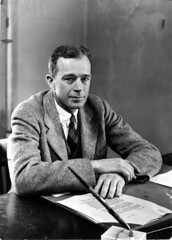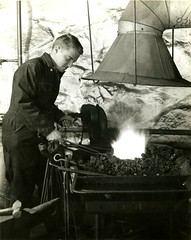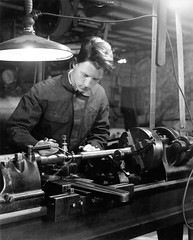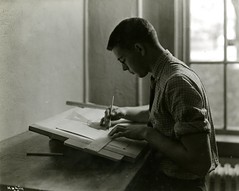Last week, the
Concord Monitor placed a front page
article about a robot--functioning as a member of a school class--enabling a student who cannot attend school to enjoy a virtual experience. The robot is the product of
VGo, which is the creation of Grinnell More '82 (and father of Hannah '12). In an email to his Proctor mentor, Jon Siegel, Grinnell credits the roots of his passion and skill to Proctor's machine shop. He's pictured, below, back at center right, and Jon is far left.

Proctor's extraordinary wealth of mechanical arts is not the product of a mission-based decision from the comfort of economic well-being. To the contrary, we inherited the remnants of programs generated in the depths of the Great Depression, when Halsey Gulick put students to work to maintain the school. Beyond that--to expand the pool of admissible students--the school created a "general course" that offered practical, mechanical skills programs until the mid-'50s. This alternative to the college preparatory track is the progenitor of today's machine shop, wood shop, boat building, woods team, and the entire ethos of experiential modes of learning that distinguish the school.
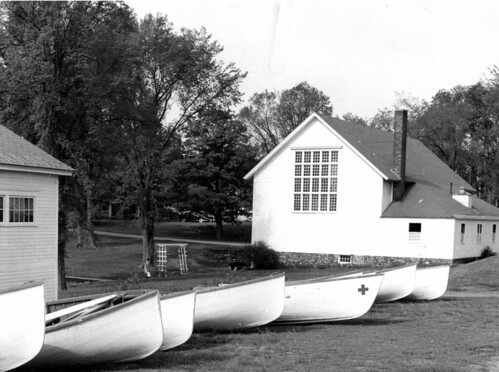
Machine shop is a smaller program today, but it continues to grab a handful of kids with the same power it did eighty years ago, and it contributes to our ability to attract a diverse population of students....some of whom enter never dreaming that they'll flourish in the machine shop or in boat building, or woodshop....



























